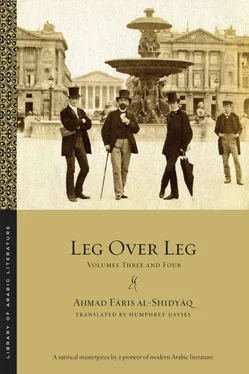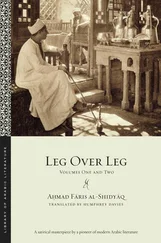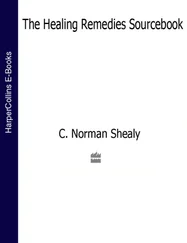or buwāl ,
“a disease that causes an increase in urine”
or thaʿal ,
“the overlying of one another by the teeth”
or thalal ,
“loss of teeth”
or ḥadhal ,
“redness of the eye, or an ulceration of the eye with tearing”
or ḥiql ,
“a disease of the belly”
or ḥalal ,
“flaccidity and pain in the tendon”
or ḥawal ,
“too well-known to require definition” [“squint”]
or khabal ,
“morbidity of the limbs, or hemiplegia”
3.1.24
or khazal ,
“a fracture in the back”
or khumāl ,
“a disease of the joints”
or daḥal ,
“largeness of belly”
or dakhal ,
“any morbid condition, mental or physical, that may affect you”
or sabal ,
“a film over the eye resulting from the inflation of its exterior veins”
or saghal ,
“one who is saghil has a small body with mean limbs, or is one whose limbs are disordered, or one whose physical constitution and nutrition are poor, or one who is wrinkled and emaciated; the verb saghila applies to all the preceding”
or sulāl ,
“too well-known to require definition; synonym sill ” [“tuberculosis”]
or sawlah ,
“flaccidity of the belly and other parts”
or ṣaḥal ,
hoarseness
or ḍaʿal ,
“weakness of the body resulting from too-close consanguinity”
3.1.25
or ṭaḥal ,
“a disease of the spleen”
or ṭulāṭilah ,
“falling of the uvula so that neither food nor drink easily passes through it”
or ʿafal ,
“something that breaks out in women resembling the scrotal hernia [in men]”
or ʿaqal ,
“knock-kneedness”
or ʿaqābīl ,
“an eruption on the lip following a fever”
or ghamal ,
“the festering of a wound as a result of its being tied too tightly”
or qabal ,
“the turning of one of the two pupils toward the other”
or namlah ,
“a pustule that erupts on the body as a result of inflammation and chafing and which quickly destroys the flesh where it is and then takes hold in another place”
or uṭām ,
“retention of the urine and feces due to a disease”
or ḥujām ,
“a disease of the eye”
3.1.26
or judhām ,
“too well-known to require definition” [“leprosy”]
or khasham ,
“change in the smell of the nose due to a disease”
or raḥam ,
“pain in the womb”
or saram ,
“pain in the buttocks”
or ḍajam ,
“crookedness of the mouth, jawbone, lip, chin, and neck”
or ʿasam ,
“stiffening of the wrist or ankle joint resulting in distortion of the hand or foot”
or ghamam ,
“the spreading of hair in such a way as to narrow the brow and the nape”
or faqam ,
“advancement of the upper incisors so that they do not meet the lower”
or qaʿam ,
“a distortion and raising of the buttocks”
or kazam ,
“shortness of the nose”
3.1.27
or kasham ,
“inferiority of physique or of pedigree”
or mūm ,
“the most extreme form of smallpox”
or baṭan ,
“belly disease”
or thafan ,
“a disease of the thafinah , which, in a human, is the knee, or the place where the shank and the thigh meet”
or danan ,
“bowing of the back, walking with short steps, and lowering the chest and neck”
or zaman ,
“an affliction [of the body]; synonym ḍaman [chronic or crippling sickness]”
or tasawwun ,
“flaccidity of the belly”
or qaʿan ,
“repugnant shortness of the nose”
or āhah or māhah ,
“ āhah is measles and māhah is smallpox”
or jalah ,
“recession of the hair from the fore part of the head”
3.1.28
or shawah ,
“both longness and shortness of the neck (one word with two opposite meanings)”
or fawah ,
“capaciousness of the mouth”
or qarah ,
“ qarah [jaundice] is to the body what qalaḥ [yellowing] is to the teeth”
or qamah ,
“lack of appetite for food; synonym qaham ”
or marah ,
“festering of the eye as a result of failing to apply collyrium”
or balah ,
“lack of native wit”
or talah ,
“confusion, or walah ,” which means “losing one’s mind as a result of sorrow”
or dalah ,
“losing one’s mind as a result of worry and so forth”
or bazāʾ ,
“a bending of the back at the buttocks, or projection of the middle of the back over the anus”
or jaḥw ,
“capaciousness and flaccidity of the skin”
3.1.29
or jalā ,
“[a form of hair loss] short of baldness”
or jawā ,
“a disease of the chest”
or ḥaṣāh ,
“hardening of the urine in the bladder until it turns into something like stones”
or ḥaqwah ,
“pain in the belly from eating meat”
or khadhā ,
“flaccidity and floppiness of the ear”
or rathyah ,
“a pain of the joints, hands, and feet, or a swelling in the legs, or one’s not being able to turn as a result of old age or pain”
or sharā ,
“small red itchy pimples”
or shaghā ,
“variation in the manner of growth of the teeth, some being long, some short, some pointing in, some pointing out”
or ḍawā ,
“meagerness of the body, or paucity of the body, either as an inborn trait or as a result of emaciation”
or ṭanā ,
“[the verb] ṭanā means ‘his spleen and his lungs stuck to his ribs on the left side’”
3.1.30
or faghā ,
“a distortion of the mouth”
or qaʿā ,
“the projection of the tip of the nose followed by its turning up toward the bridge”
or qaṭā ,
“a disease of the buttocks”
or laqwah ,
“a disease of the face”
or lawā ,
“a pain in the stomach, or a crookedness in the back”
not to mention other blemishes, such as being a dwarf or a runt, or undernourished, potbellied, and thin-necked, or a beanpole or a midget or squat and fat or short and ugly, or diseases for which no name as yet is known and which it is impossible to enumerate in their entirety since they are too many to be contained within these twenty-eight letters. 1The most trying and harmful of them all are erotomania and erectile dysfunction, to which last our contemporaries have added venereal disease, for which our noble language has no word. 2
3.1.31
Again I say, “Is it not enough for men that their lives are short and spent mostly in lengthy thought , their lot hard, each in enough care, struggle, and grief drowned to suffice him and still leave a balance to go round ? The seeker after knowledge, to elucidate issues and clarify matters of debate must burn the midnight oil , to scrape the barest living the craftsman must bend over his work all day in resentful toil . The emir is preoccupied with laying down the law and maintaining his domination , the president frets over his administration . The king lives in dread lest his ministers conspire to administer to him a potion that will leave him dead , the ministers quaver lest he find fault with them and withdraw his favor . The merchant goes early to the shop he hires , worried that his goods will find no buyers . The physician fears people living more sensible lives and dispensing with his skills , leaving his drugs to go rancid and the liquids in his bottles to go stagnant, while corrupted become his powders, electuaries, dry doses, and pills . The judge prays that no young lady come before him to snare him with her looks or disconcert him with matters not found in his books , entrapping him in floss till, as to her affairs, he’s at a loss . The ship’s captain’s on guard lest a storm arise , the general against the outbreak of war’s fire, whose fuel is lives —saying, on seeing that his sultan’s thinking is quirky , his mood murky , ‘God protect me from time’s upsets and make this quirkiness a passing spell , gone before the supper bell , for in the face of my king and commander I see designs for the clash of titans and the lineaments of battle , while I have a companionate wife and children, property, and cattle ! God make the foreigners hold their tongues and cease their slander , cast terror of him into their hearts and wipe from his breast aught that may make him rage or rouse his dander !’ The ploughman is afraid of too much rain and the hurricane , the educator that men will turn from a thirst for knowledge to one for ignorance, the educated that later writers will say something biting and of the consequences of writing (writing, that is, a book that will suck dry what remains of patience’s limited supply and keep him from any distraction or attraction ), the singer and player of instruments that prices will become inflated or the hearts of the rich desolated , the playboy that men will be guided to become more serious , the poet that he’ll find the object of his panegyrics as impervious as rock or his beloved unresponsive and imperious , the author like me of lunatics (meaning he’s on his guard against them, not that he’s one of them), 3who may bar his path , burning his book and tearing his hide to pieces in their wrath , the husband of the decampment of his wife and of his daughter’s staying a spinster for life (as are they, in turn, of his stinginess with his pelf and denial of access to his wealth ), the priest of the philosophers’ books , and the philosophers of the priest’s threats, fulminations, and thunderous looks . Thus, in sum, everyone with a trade fears lest its benefits be diverted , each prays God his affairs go right even if his friend’s must be perverted , for scarce any of the aforementioned can his own interests fulfill without another, of necessity, faring ill (as Abū l-Ṭayyib al-Mutanabbī put it, ‘The setbacks of some are for others opportunities’), despite which each claims he has a right to what he asks for, that he deserves to be granted his prayers , and that the proof of his claim lies in the sayings of the Glorious and Almighty Truth, that most truthful of sayers .”
Читать дальше












